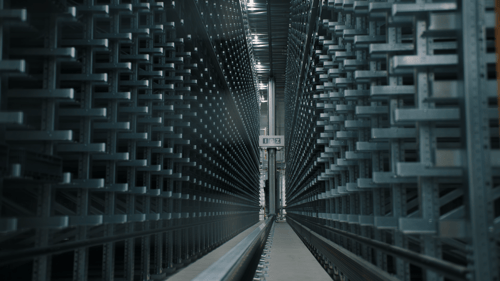Industry 4.0 and the Evolution of Machine Manufacturing
In the ever-evolving landscape of technology, Industry 4.0 stands out as a transformative force, especially in the realm of machine manufacturing.

Defining Industry 4.0
Industry 4.0, often referred to as the fourth industrial revolution, represents the convergence of physical and digital technologies. It encompasses a broad spectrum of technologies such as the Internet of Things (IoT), artificial intelligence (AI), cloud computing, big data, and advanced robotics. The integration of these technologies aims to create "smart factories" that are interconnected, data-driven, and capable of autonomous decision-making.
It relates to any commercially available application containing tools to automate pricing analytics, optimization, and execution to help businesses in their efforts to make efficient pricing decisions.

Importance of Industry 4.0 in Manufacturing
The adoption of Industry 4.0 principles in machine manufacturing holds immense importance for several reasons:
Enhanced efficiency
Automation and real-time data exchange enable a seamless flow of information throughout the manufacturing process, such as pricing. A big factor of Industry 4.0 is big data, and this is another aspect that contributes to efficiency, as dealing with large amounts of data can be time consuming normally.
Improved quality
Smart manufacturing systems equipped with sensors and AI can detect and address defects in real-time, ensuring higher product quality and reducing waste.
Cost reduction
Predictive maintenance, a key feature of Industry 4.0, allows manufacturers to forecast equipment failures and schedule maintenance activities, minimizing downtime and reducing overall maintenance costs.
Customization and flexibility
Industry 4.0 facilitates the production of customized data on a mass scale by enabling agile and flexible manufacturing processes.
Continuous advancements in technologies such as AI, IoT, and data analytics contribute to the refinement and expansion of Industry 4.0 applications.
The growing trend of interconnected global supply chains and the need for real-time collaboration make Industry 4.0 a strategic imperative for manufacturers seeking to remain competitive.
The disruptions caused by the COVID-19 pandemic underscore the importance of resilient and adaptable manufacturing processes, further emphasizing the need for Industry 4.0 solutions.
Industry 4.0 Trends in Machine Manufacturing
Several trends are shaping the evolution of Industry 4.0 in machine manufacturing:
Edge Computing
The adoption of edge computing allows for real-time data processing at the source, reducing latency and enhancing the efficiency of manufacturing operations.
Digital Twins
Digital twins, virtual replicas of physical systems, enable manufacturers to simulate and analyze processes, optimizing performance and facilitating predictive maintenance.
Human-Machine Collaboration
Industry 4.0 fosters a collaborative environment where humans and machines work together harmoniously, with machines handling repetitive tasks and humans focusing on complex decision-making.
Connection Between Industry 4.0 and AI
Artificial intelligence plays a pivotal role in the success of Industry 4.0 initiatives. Machine learning algorithms analyze vast amounts of data generated by interconnected devices, allowing manufacturers to gain insights, optimize processes, and make informed decisions. AI-powered predictive analytics, coupled with machine learning, enables manufacturers to forecast maintenance needs, improve product quality, and enhance overall operational efficiency.

Industry 4.0 represents a paradigm shift in machine manufacturing, offering unprecedented opportunities for innovation and efficiency. As we look towards 2024, the integration of advanced technologies, the emergence of new trends, and the symbiotic relationship between Industry 4.0 and AI will continue to drive the evolution of smart manufacturing. Embracing these changes is not just a necessity; it is a strategic imperative for manufacturers aiming to thrive in the dynamic landscape of the fourth industrial revolution.

Market Intelligence and AI in Machine Manufacturing
Competitive advantage through in-depth market knowledge: Learn more about the role of market intelligence and AI in machine manufacturing, specifically in after sales and spare parts pricing.

Communicating Price Adjustments
The PRICERADAR identifies opportunities in your parts pricing - realizing these potentials means adjusting prices.

Overview of Parts Pricing Strategies
Competing in today's marketplace requires a parts pricing strategy that is in line with what the market will bear...

Guide to Market-Based Pricing
Discover how to sustainably increase your revenue with market-based spare parts pricing.